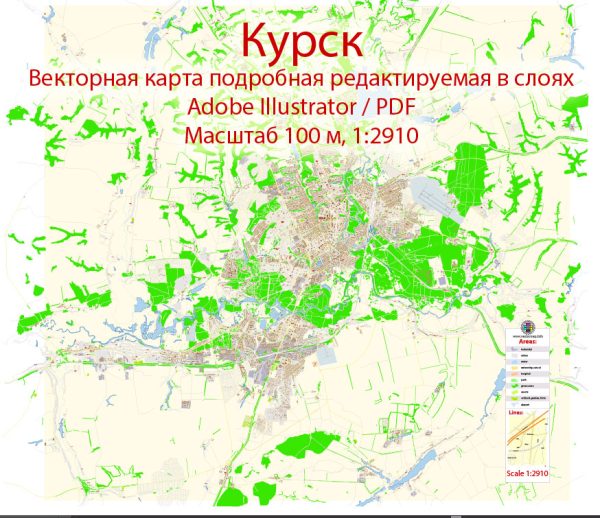Kursk is a city located in southwestern Russia and is the administrative center of Kursk Oblast. Its history of urban development dates back to ancient times, making it one of the oldest cities in the country. Here’s a brief overview of Kursk’s history:
- Ancient Period:
- Kursk was founded in the 11th century and is mentioned in historical records as early as 1032.
- The city’s name is believed to have originated from the Slavic word “kurgan,” meaning burial mound, indicating the presence of ancient settlements in the area.
- Medieval and Mongol Rule:
- During the medieval period, Kursk was part of the Kievan Rus’ and later the Grand Duchy of Lithuania.
- In the 13th century, the region, like much of Eastern Europe, fell under Mongol rule as part of the Golden Horde.
- Russian Empire:
- Kursk became part of the Russian Empire in the 16th century.
- The city’s development was influenced by its strategic location along trade routes and its role as a center for agriculture and commerce.
- 18th and 19th Centuries:
- In the 18th century, Kursk experienced growth and development as part of the Russian Empire’s efforts to modernize and expand its territory.
- The city became a significant administrative and cultural center, with the construction of churches, government buildings, and educational institutions.
- Soviet Era:
- During the Soviet era, Kursk played a role in various historical events, including World War II.
- The Battle of Kursk (1943) was a crucial turning point on the Eastern Front, where the Soviet Union successfully defended the city against German forces.
- Post-Soviet Period:
- After the dissolution of the Soviet Union in 1991, Kursk became part of the Russian Federation.
- The city has undergone modernization and development efforts, with improvements in infrastructure, public services, and urban planning.
- Economic and Cultural Significance:
- Kursk has been an important industrial and cultural center in the region, with industries such as metallurgy, machinery, and food processing.
- The city is known for its historical and cultural landmarks, including churches, museums, and monuments.
- Urban Development Today:
- In recent years, Kursk continues to develop as a regional hub, with a focus on improving infrastructure, attracting investments, and enhancing the quality of life for its residents.
Overall, Kursk’s history reflects its resilience through various historical periods and its continued significance as an important city in Russia.


 Author: Kirill Shrayber, Ph.D. FRGS
Author: Kirill Shrayber, Ph.D. FRGS